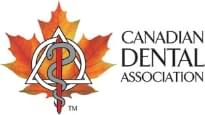Dental Sedation
Are you putting off a trip to the dentist because you are anxious about feeling pain? Does the idea of sitting still for an extended period with your mouth open feel impossible? Or perhaps the sounds associated with dental procedures make you feel on edge.
You are not alone. Many people delay dental treatment because they are anxious about the procedures. As family dentists in Hanover, we offer various sedation options so you and your family will feel comfortable while getting the necessary treatments.
What Is Dental Sedation?
Dental sedation uses medication to help you relax during dental procedures. ‘Sleep dentistry’ is another name given to dental sedation. Different types of sedation are available, from moderate sedation to general anesthesia. Moderate sedation will help you feel more relaxed, while general anesthesia will put you to sleep.
Our experienced dentists will determine which type of sedation is best for you based on your medical history, anxiety level, and the procedure required.
IV Moderate Sedation
IV (intravenous) sedation is administered through a small needle in your arm. You may feel a slight sting for a few seconds as the needle is inserted. The medication works quickly to make you feel relaxed and drowsy.
This level of moderate sedation is also called ‘conscious sedation.‘ While sedated, you can respond to questions and follow simple instructions from your dentist. You may not remember much about the procedure afterward, meaning no memories of sights, sounds, or smells.
Once sedated, your dentist will inject local anesthesia into your gum tissue. The anesthesia will numb the procedure area, so you will not feel any pain.
After the procedure, you will likely feel some discomfort when the medication wears off. Nausea and headaches are common and should go away quickly. You will need someone to drive you home after your appointment, as the effects of the sedation can last for several hours.
Benefits of IV Sedation
- Sedatives administered through the bloodstream work more quickly than oral sedatives.
- Although you will feel drowsy, you will still be able to control your body and breathe on your own.
- You will not feel pain or anxiety during the procedure.
- Fewer side effects and shorter recovery time compared to deep sedation and general anesthesia.
IV Deep Sedation
Deep IV sedation is administered the same way as moderate IV sedation. However, a higher dosage of one or multiple sedative medications accomplishes a deeper level of sedation. Although still conscious, you will not be able to verbally and physically respond as readily as with moderate sedation. You will be less aware of your surroundings and feel very tired, so you will probably fall asleep during most of the procedure.
If your breathing slows while sedated, you will need to receive oxygen through a small mask placed over your nose. Our dental team will monitor your breathing and intervene if necessary.
We usually recommend deep sedation for more complex oral surgery procedures, such as wisdom teeth or other complicated extractions. It is also preferred if you have a significant dental phobia or are very anxious.
Once sedated, local anesthetic injections will numb your gums and teeth, ensuring you feel no pain during the procedure.
As with moderate IV sedation, you will need someone to drive you home after your appointment. Within a few hours, any effects of sedation should pass.
Benefits of Deep Sedation
- Increased comfort during the procedure
- No pain or anxiety
- Reduced gag reflex
- Your dentist can perform multiple dental procedures in one visit
General Anesthesia
Once sedated, an endotracheal tube will be inserted through your mouth or nose to help you breathe during the procedure. Our dental team is highly trained and experienced in administering general anesthesia and will closely monitor your heart rate and breathing throughout the procedure.
General anesthesia is safe and adverse effects are rare. People with significant health problems can generally undergo general anesthesia without serious issues. Still, not everyone is an ideal candidate for general anesthesia. Some health conditions increase the risk of complications while under anesthesia. These include heart, lung, or kidney conditions, obesity, and diabetes. If you smoke or drink alcohol heavily, your dentist may recommend another type of sedation.
During your consultation, your dentist will consider the risks and benefits of general anesthesia. They will then decide if this sedation method is suitable for you and happily answer all your questions.
As with any anesthesia, you may experience some side effects. These include
- Nausea and vomiting
- Headache
- Dizziness
- Shivering and feeling cold
- A sore throat from the breathing tube
If you experience any of these side effects, they should clear within 24 hours. Please contact us if you feel they are lingering or if you feel very unwell.
You will feel drowsy for a few hours after waking up, so you will need someone to drive you home after your appointment.
Benefits of General Anesthesia
General anesthesia is beneficial in the following situations:
- Pediatric patients that cannot cooperate or who are very anxious
- Children or adults with autism who struggle with sensory overload
- Older patients with dementia
- If you have extreme anxiety or dental fear
- If you have a high tolerance for the medications used for moderate or deep IV sedation
- When undergoing more invasive procedures
- When you need an extensive procedure that would usually require multiple visits
What Dental Procedures Can You Have Under Sedation?
Dental sedation is ideal for a variety of dental procedures, including
- Cavity fillings
- Root canals
- Wisdom tooth extractions
- Dental implants
Is Dental Sedation Safe?
Sleep Dentistry Could Be the Answer to Your Dental Anxiety!
Contact us today if you are ready for a stress-free dental experience for your next procedure! Our dental team will be happy to answer your questions about sedation dentistry and find the treatment option that is right for you. For sleep dentistry in Hanover, call (226) 257-8888 or complete the online booking form.
OUR LOCATION
We are located at the corner of 20th Ave and 11th St just north of 10th Ave and across the street from Pet Valu.
Associations
Hanover, ON
N4N 3B4
HANOVER DENTAL SEDATION 2022 | PRIVACY POLICY • SITE DEVELOPED BY 151 DIGITAL




